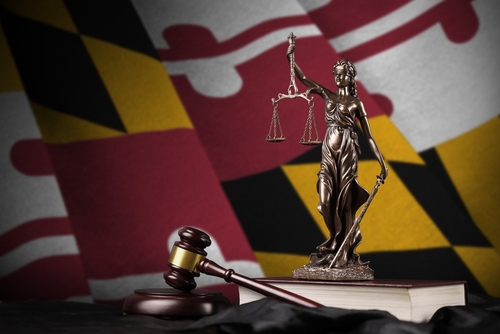- Home
- Daily News
- Trump administration sues Maryland federal…
Immigration Regulation
Trump administration sues Maryland federal courtroom and its judges over standing order on deportations

The Trump administration has filed a lawsuit in Maryland federal courtroom in opposition to the courtroom itself and its judges in an effort to overturn a standing order that robotically bars the deportation of detained immigrants who file habeas petitions. (Picture from Shutterstock)
The Trump administration has filed a lawsuit in Maryland federal courtroom in opposition to the courtroom itself and its judges in an effort to overturn a standing order that robotically bars the deportation of detained immigrants who file habeas petitions.
Based on a June 25 press release from the Division of Justice, the standing order “is one more egregious instance of illegal judicial overreach into the chief department’s capability to implement and administer federal legislation.”
Law.com, Reuters, Bloomberg Law and the New York Times lined the weird June 24 suit.
A separate DOJ motion seeks seeks recusal of the defendant judges. The case needs to be transferred to a different district, or a distinct choose needs to be appointed to deal with the case, the movement says.
Chief U.S. District Decide George L. Russell III of the District of Maryland signed the preliminary standing order Might 21 and a revised order Might 28. The order retains the injunction in place for almost two enterprise days except it’s prolonged by the choose listening to the case.
The “computerized injunction points whether or not or not the alien wants or seeks emergency aid, whether or not or not the courtroom has jurisdiction over the alien’s claims, and regardless of how frivolous the alien’s claims could also be,” the go well with says. “And it does so within the immigration context, thus intruding on core govt department powers.”
Bloomberg Regulation famous the weird posture of the case.
“The lawsuit is for certain to boost questions of judicial immunity, as judges usually can’t be sued over their official acts,” the article says.
In an interview with Reuters, Marin Levy, a professor on the Duke College College of Regulation, stated the go well with “is a surprising transfer by the Justice Division that’s merely unprecedented.”
“It looks like a part of a strategic try and assault the courts, fairly than any form of good religion litigation,” Levy stated.
The case is United States v. Russell.
Write a letter to the editor, share a story tip or update, or report an error.
